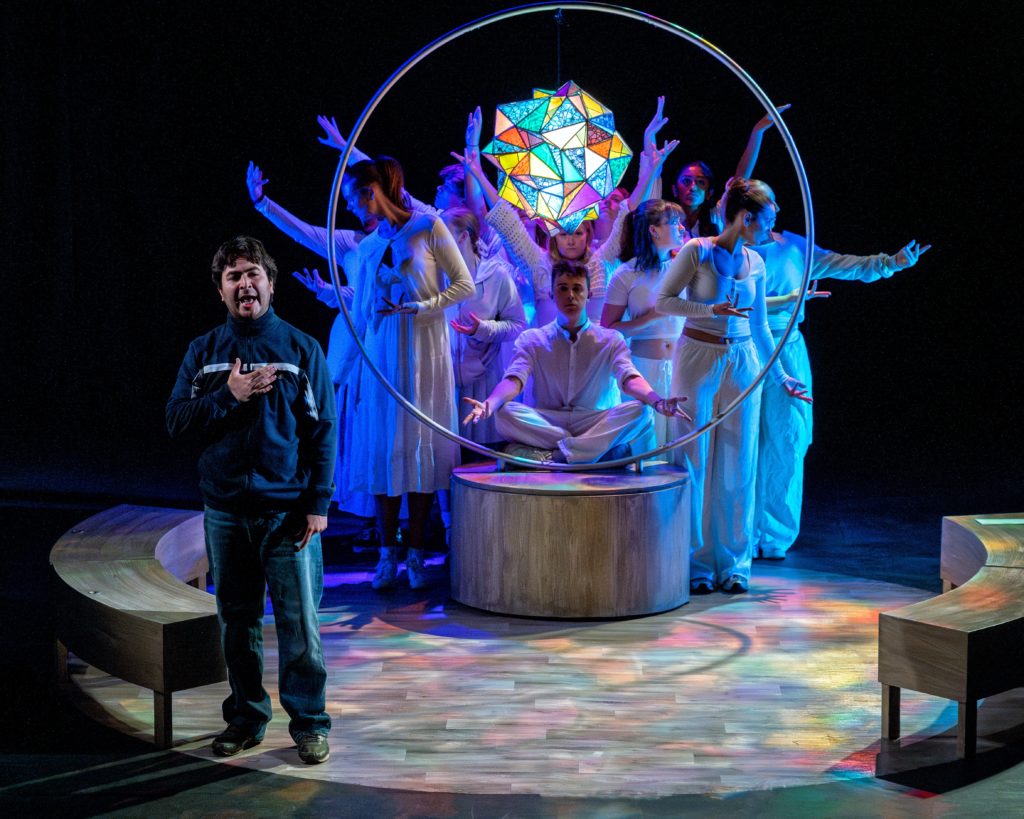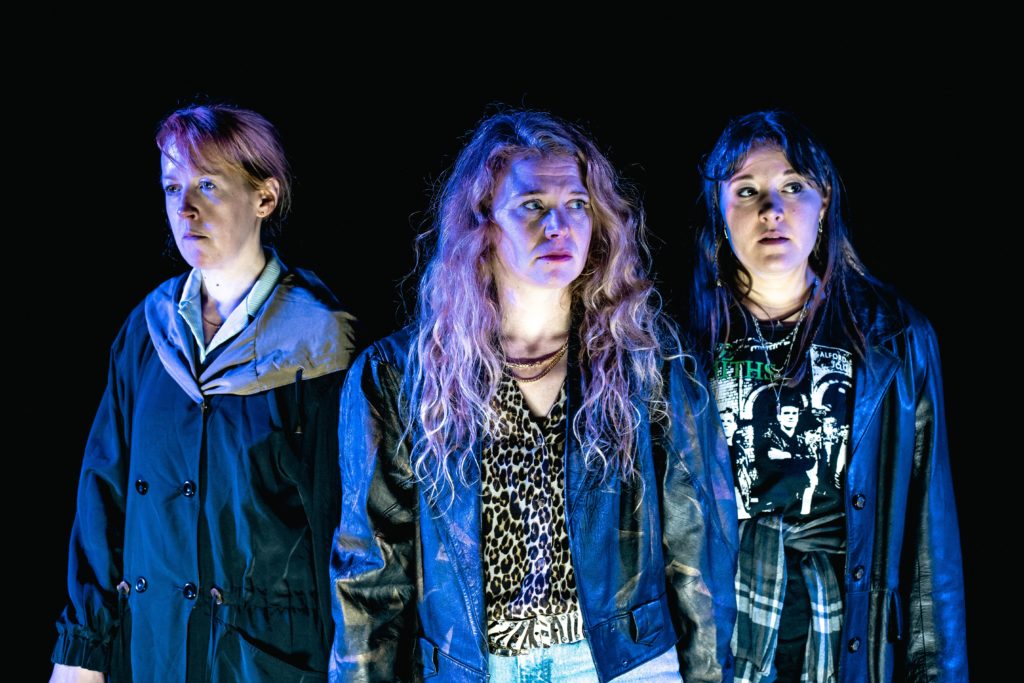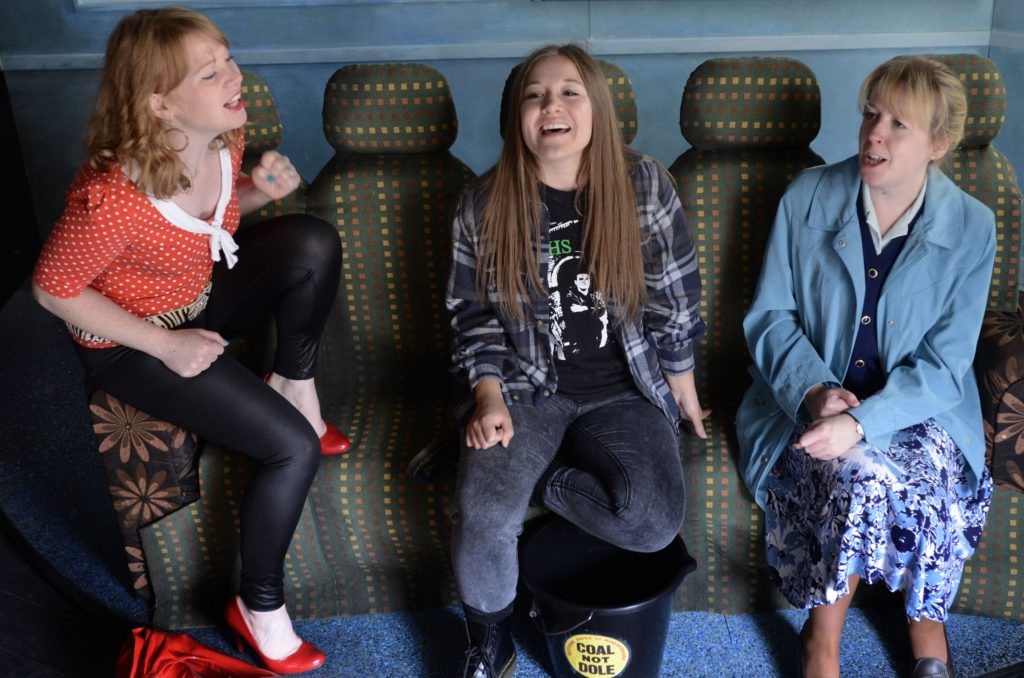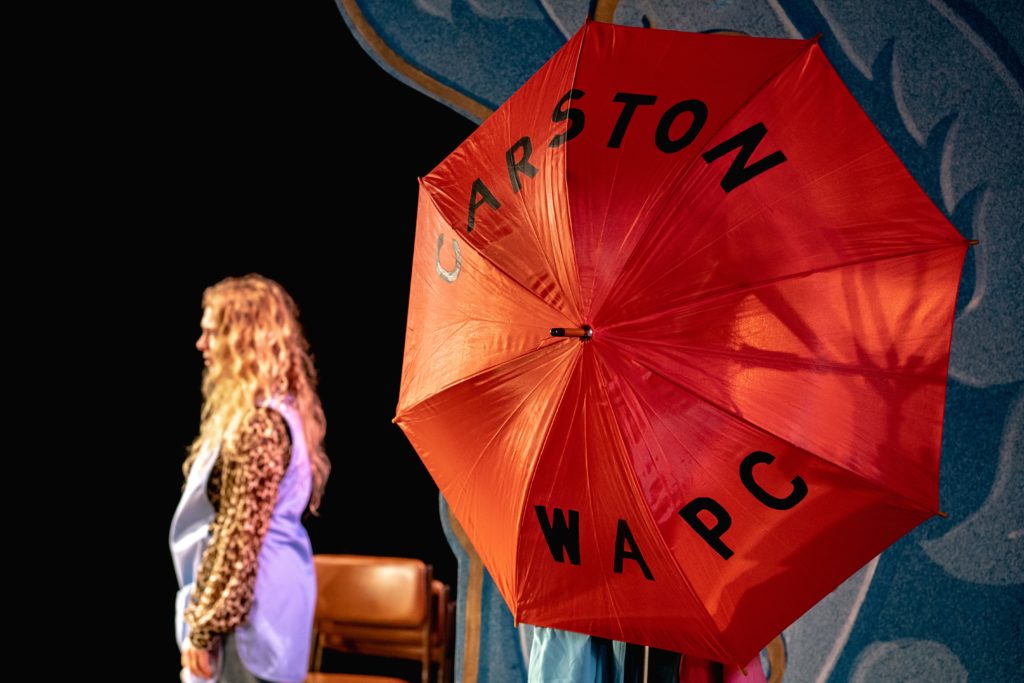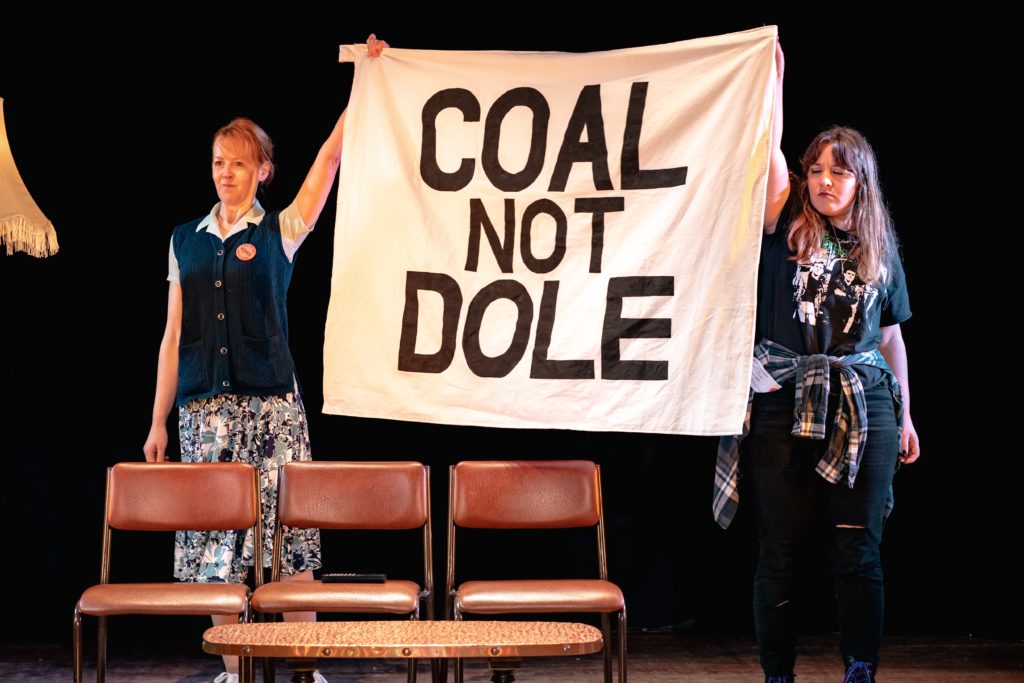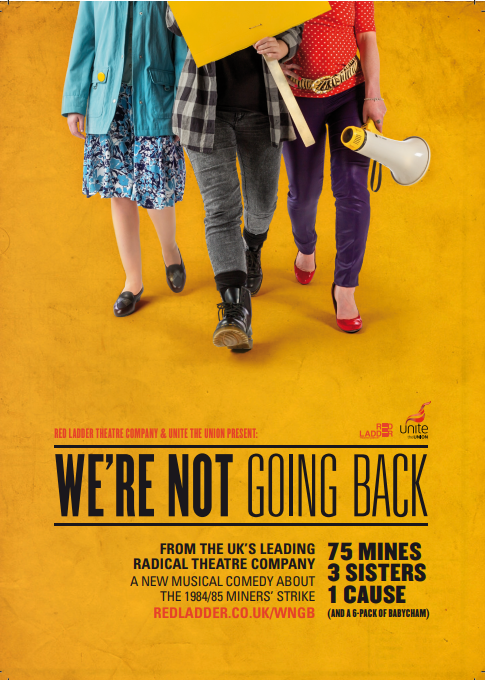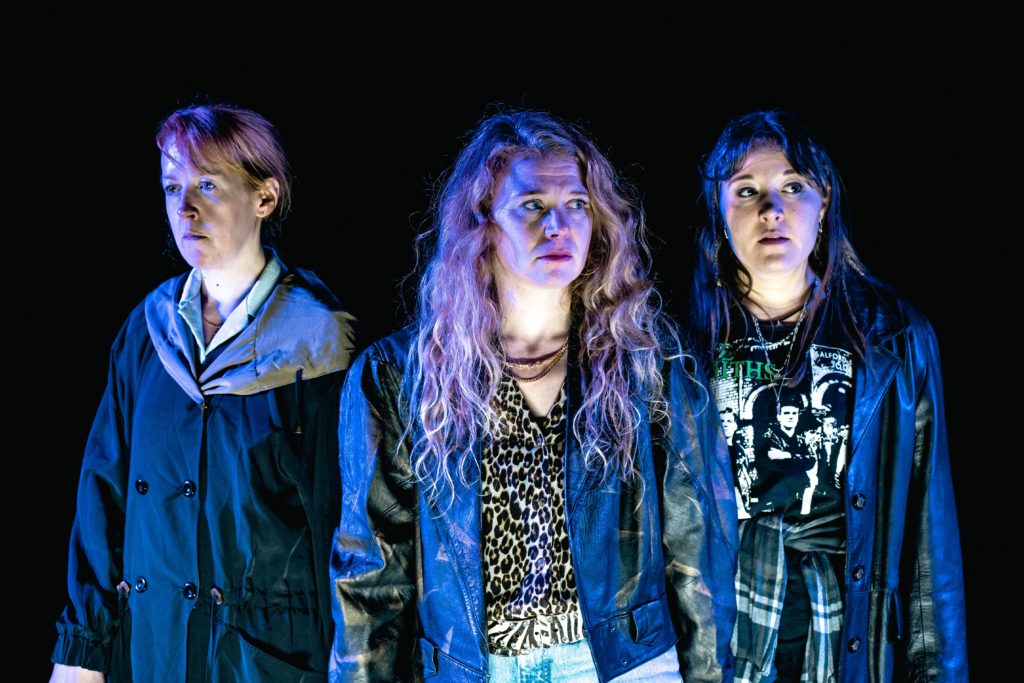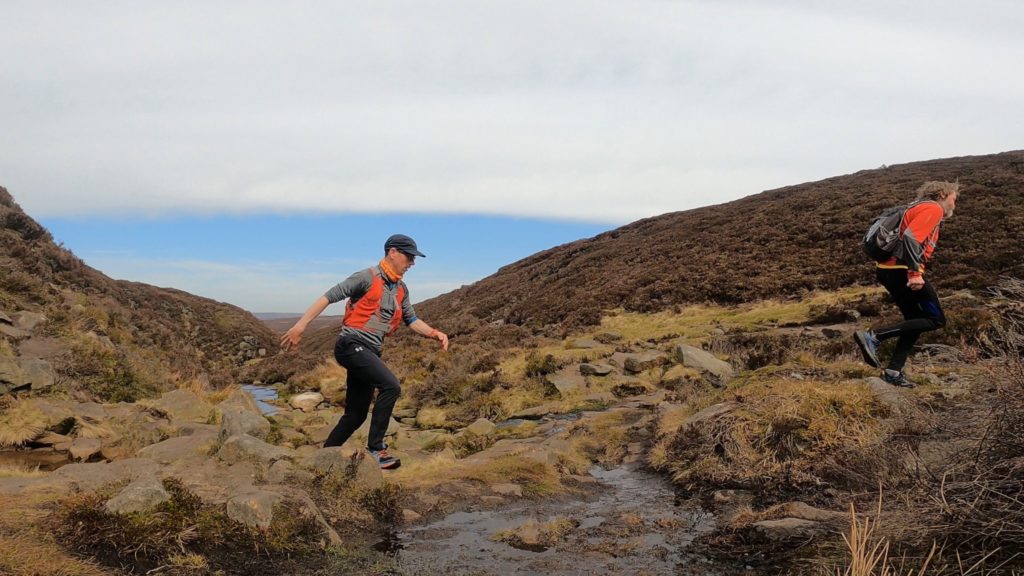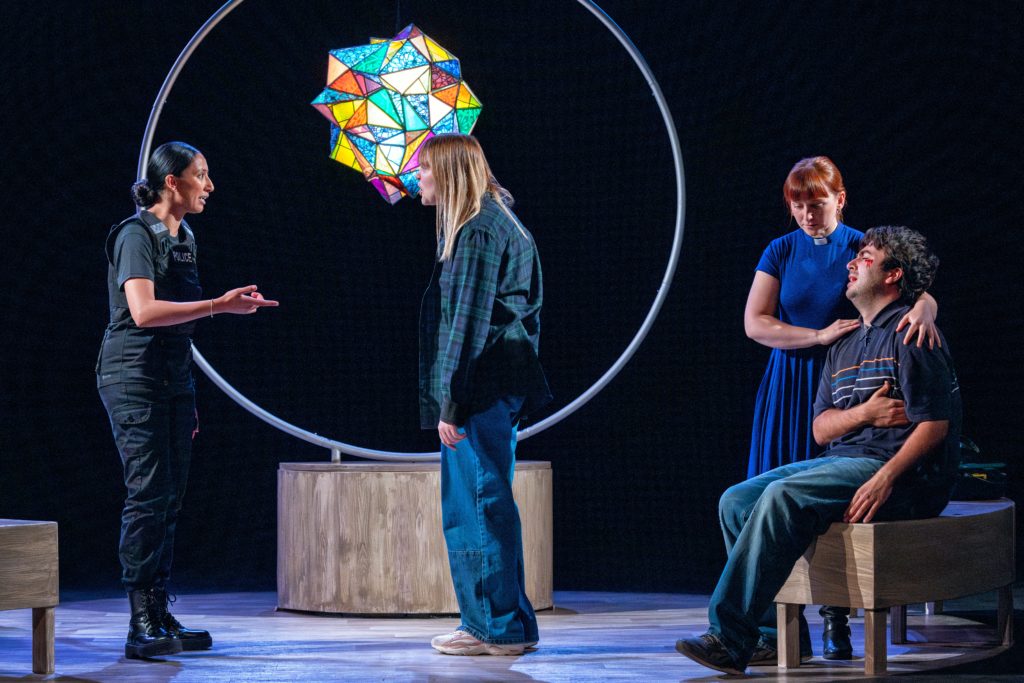
RED Ladder’s first touring production under the direction of new artistic director Cheryl Martin asks: “What kind of society do we want to live in?”
One where the arts can thrive, one where the medium’s message of co-operation, collaboration, freedom of expression, communion, connection, compassion and shared humanity spreads its wings to society at large.
One where there would be an understanding of why asylum-seeking young Iranian journalist Alland (played by Aein Nasseri) is seeking sanctuary at a church in northern England in this topical new musical by Boff Whalley (music and lyrics) and Sarah Woods (book).
Pioneering Leeds agit-prop theatre company Red Ladder has united with Wakefield Theatre Royal and CAPA College, Wakefield, for a tour of theatres, community venues and, significantly, churches from September 19 to November 9. Everyone is pulling in one direction, unlike the protagonists in this fraught drama, the different forces at play within a fractured State and Church at war with itself.
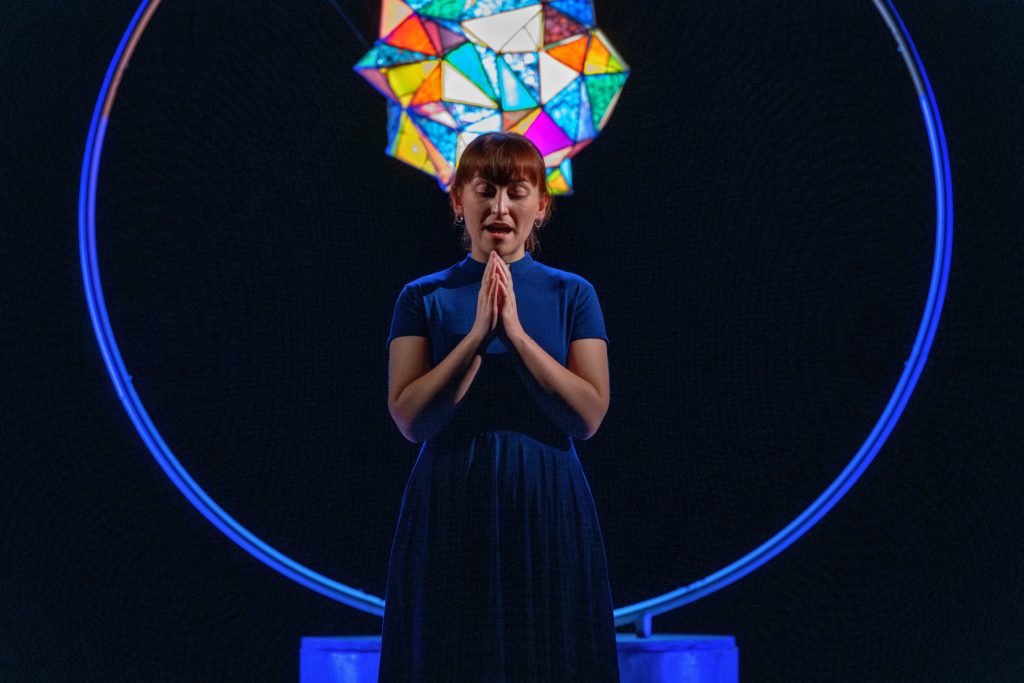
The programme cover takes the form of an Order of Service, on account of what will happen at the climax, but it also further pushes the Church to the fore of the debate that plays out contentiously.
Word has it that the script has been toned down, but it still packs a punch, and where better to watch the sparks fly than in a church, Selby Abbey, for all the familiar frustrations of imperfect sight lines, lighting and sound not being on a par with theatre facilities. (Faces were not well lit; some lines were lost to the acoustics of a vertiginous stone building.)
There is nothing rose-tinted about Red Ladder here. Tellingly, Sanctuary tells its story from all sides. It does not shy away from Alland being an illegal immigrant, already told to leave but pleading to stay for fear of what would ensue if he were to return to Iran, where his courageous journalism had challenged the authorities on their treatment of women.
Church worker Molly (Ingrid Bolton-Gabrielsen) and all-inclusive vicar Fiona (York actress, singer and clown Emily Chattle) support him.
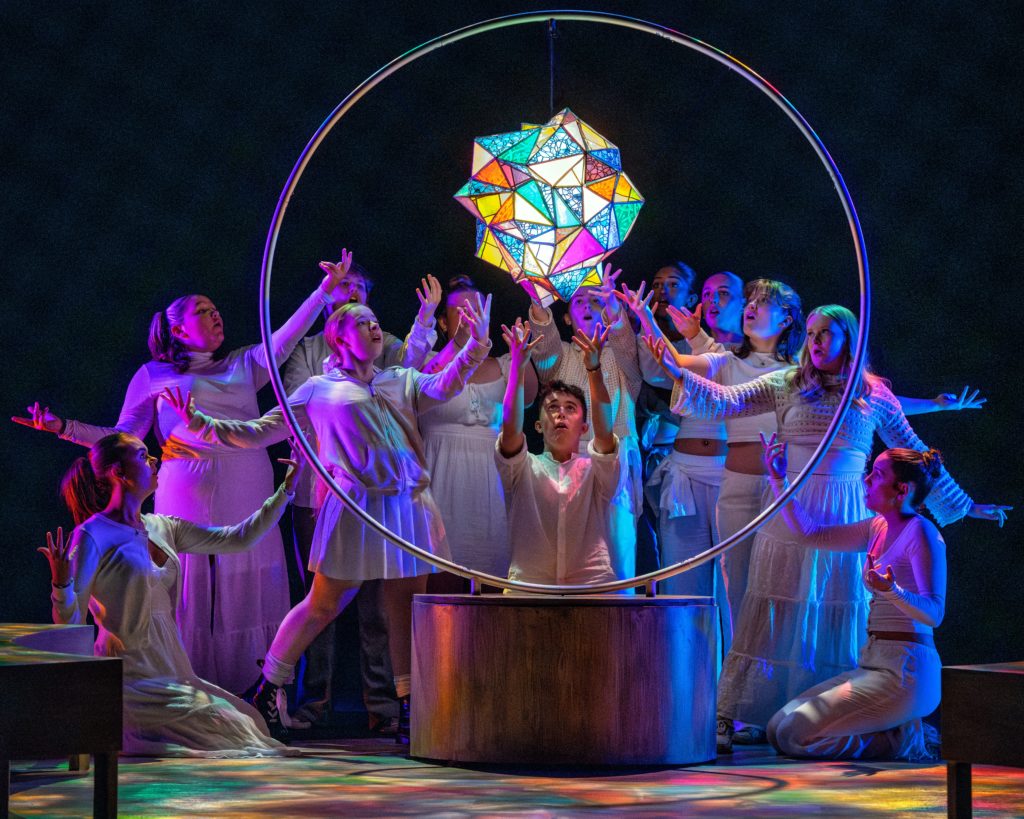
Stone-hearted higher church authority Peter (York actor and keyboard player Richard Kay) plays it by the book, (the law of the land, not the spirit of the Good Book). So does police officer Uzma (Ravneet Sehra), a third-generation British Asian woman who attends the Christian church. The difference between Alland and her immigrant grandparents, she says, is that he came here illegally whereas they were invited to work here.
Sanctuary is billed as a musical, rather than a play with music, but the greater weight of the piece, the drama, lies in the confrontations, the differences of opinion, red tape versus blue sky thinking, the moments of confession and contemplation, albeit that protagonists burst into song in the tradition of song being the ultimate form of emotional expression when mere words won’t suffice.
There is a second musical force at play too: the CAPA College performing arts students that serve as Sanctuary’s Greek chorus, Vox, commenting in song on what is unfolding (and joining Kay in his second role as a vigilante by playing protestors too at one point). In white, they have the presence of protective angels; in dark hoods, they become symbols of the devil, in Caitlin Mawhinney’s costume design.
At times, the chorus songs feel more like the stuff of a school musical, but musical director Jennifer Pugh pulls powerful vocal performances out of Nasseri, Kay, Bolton-Gabrielsen and especially Chattle, often in tandem with Vox. Sehra’s singing of Uzma’s Lament needed better amplification to have had its desired impact.
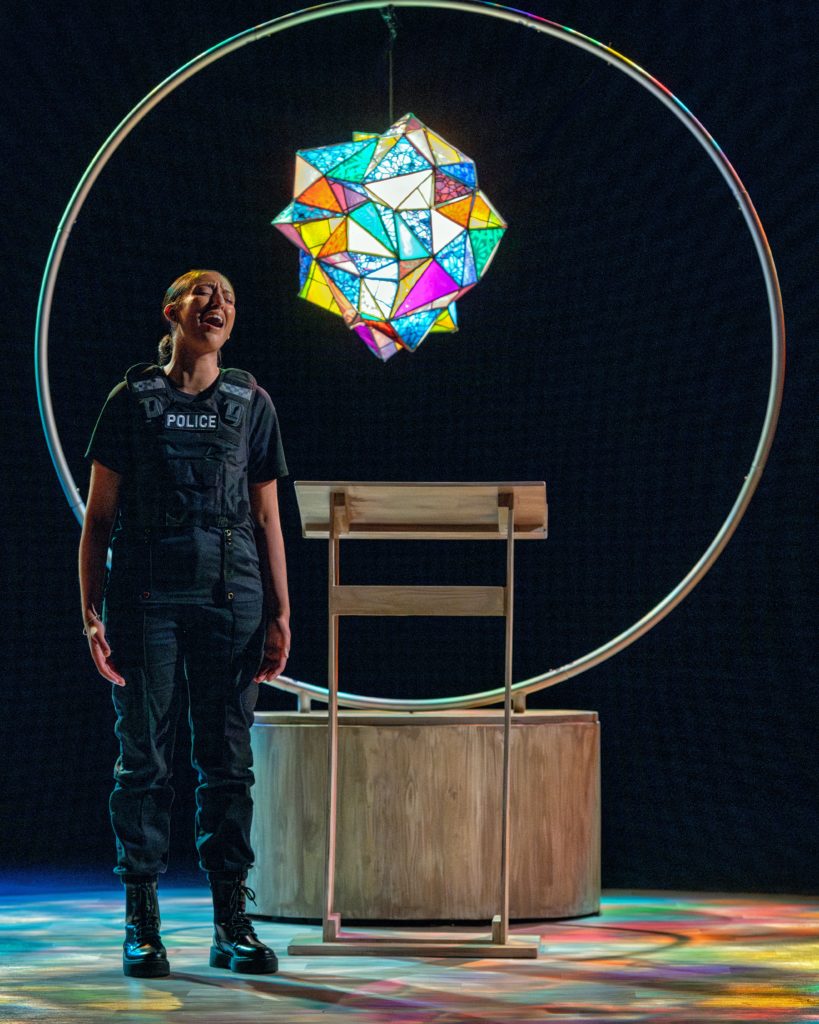
On a night of so much debate, one more came to mind: would Sanctuary have had more dramatic impetus if there had been fewer songs? Certainly, it would have cranked up the hostile environment still more in this bitter pill of a modern-day riff on Brechtian musical theatre.
Whalley posits that “music can cross divides, it can patch up differences between people, which is what Sanctuary will hope to do”, but the wound here – a nation in turmoil over immigration – appears to be growing deeper, beyond music’s healing, bonding powers.
In a nutshell, Sanctuary asks, “Do we want safety and freedom for only ourselves, or for us all?” There should be only one answer, but that would require reform, not Reform.
“I hope this musical helps open up this conversation because it’s one that goes to the heart of who we are and the kind of society we want to live in,” says director Martin. In the best of worlds, the arts can lead that progression, but right now it feels like a voice in the wilderness.
Red Ladder Theatre Company in Sanctuary, Wesley Centre, Harrogate, October 12, 7.30pm. Box office: Harrogate, 01423 502116 or harrogatetheatre.co.uk. Age guidance: 13 upwards.
Did you know?
SANCTUARY is supported by the Mayor of West Yorkshire’s Safer Communities Fund.

